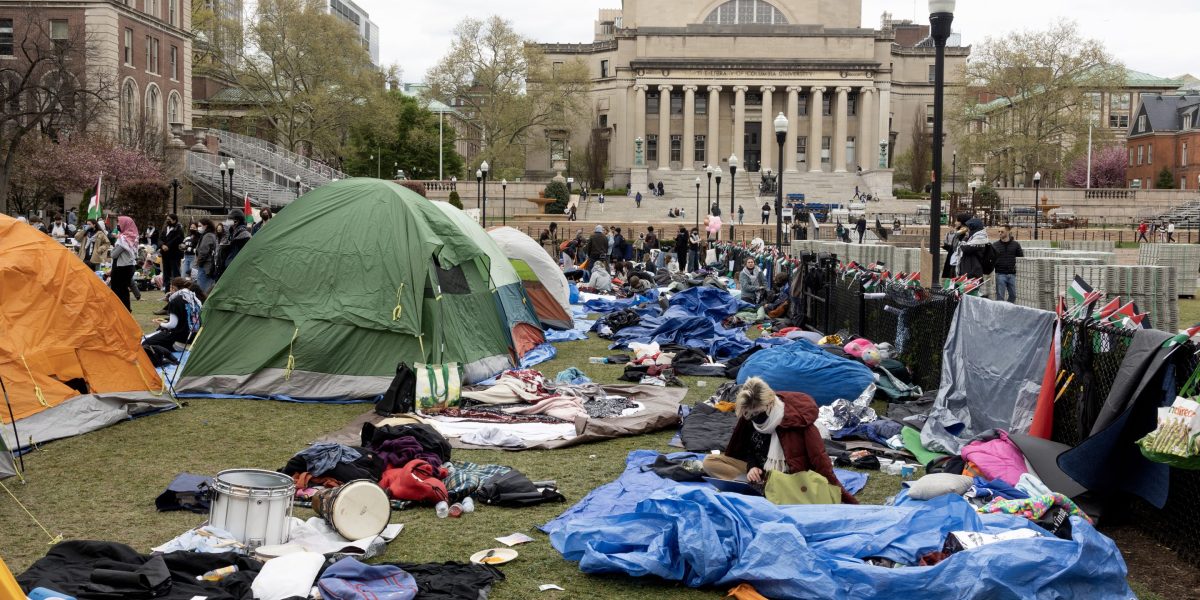This post was originally published on this site
https://fortune.com/img-assets/wp-content/uploads/2024/04/GettyImages-2149581741-e1713795306847.jpg?w=2048
Tensions over the conflict in the Middle East have risen to the point that Columbia University’s president has canceled in-person classes Monday, which also happens to be Passover, the most celebrated of all Jewish holidays.
“The decibel of our disagreements has only increased in recent days,” wrote Minouche Shafik in a statement. “These tensions have been exploited and amplified by individuals who are not affiliated with Columbia who have come to campus to pursue their own agendas. We need a reset.”
The school is asking students who do not live on campus to not come to the school Monday—and faculty and staff are being advised to stay away as well, with only essential personnel asked to report to work. The step is being taken “to deescalate the rancor and give us all a chance to consider next steps,” Shafik wrote.
Columbia, like many universities, has seen protests since the Oct. 7 attack on Israel by Hamas. But when Columbia officials testified before Congress about on-campus antisemitism, the number of Pro-Palestine protests increased, with students camping on the university’s lawn. There have been reports of non-student participants slipping into the movement, though, and additional groups of protesters have gathered outside of the university gates.
Shafik, who took the job less than a year ago, has been besieged by calls for her resignation in recent days.
The statement said the decision to make classes virtual was being made to address concerns made by Jewish students. The school also said a working group of school officials will attempt to deescalate the situation, meeting with protesters to seek a path for a peaceful end to the semester.
Campus protest groups have distanced themselves from non-student protesters, saying those were made up of “inflammatory individuals who do not represent us.” While New York City Mayor Eric Adams said the New York Police Department “will not hesitate to arrest anyone” who is breaking the law, the school has so far been resistant to enlisting law enforcement’s help—and Shafik’s statement showed continued resistance toward doing so.
“I know that there is much debate about whether or not we should use the police on campus, and I am happy to engage in those discussions,” she wrote. “But I do know that better adherence to our rules and effective enforcement mechanisms would obviate the need for relying on anyone else to keep our community safe. We should be able to do this ourselves.”



